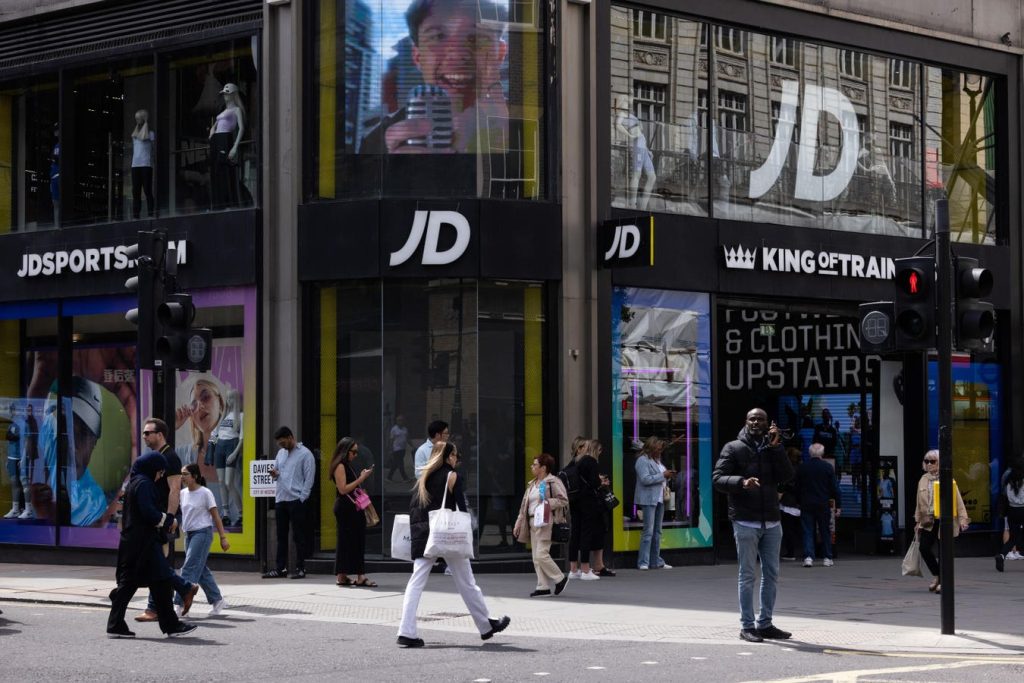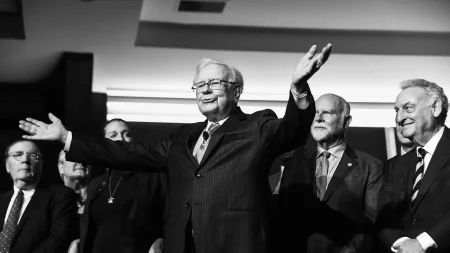JD Sports Fashion Forecasts Lower Annual Profits Amidst Challenging Market Conditions
JD Sports Fashion, the prominent sportswear retailer, has announced a downward revision of its annual profit forecast, citing stronger-than-anticipated market headwinds. The Manchester-based company now projects pre-tax profits between £915 million ($1.1 billion) and £935 million for the year ending February, falling short of its previous guidance of £955 million to £1.035 billion. This announcement triggered a significant drop in the company’s share price, declining by almost 13% in early trading before recovering slightly to close nearly 7% lower. The stock has experienced a decline of over 20% in the past year, reflecting the challenging retail environment and investor concerns.
The company attributed the lowered forecast to increased promotional activity within a volatile trading environment. Like-for-like revenue, a key metric for retail performance, experienced a 1.5% decline during the crucial November and December trading period. While organic revenue, which includes new store openings, grew by 3.4% in the same period, the overall trend points to a softening consumer demand for sportswear and athletic footwear. JD Sports now anticipates flat like-for-like revenue for the full year, with organic revenue growth projected around 5%. This cautious outlook suggests a continuation of the challenging market conditions into the new financial year.
CEO Régis Schultz explained that JD Sports strategically chose to refrain from excessive promotional activity, prioritizing the improvement of gross margins, maintaining clean inventory levels, and ensuring strong cash management. While expressing overall satisfaction with the company’s performance, Schultz acknowledged the impact of stronger-than-anticipated market headwinds on profitability. The company’s focus on long-term financial health, even at the expense of short-term sales gains, reflects a prudent approach in a turbulent retail landscape.
Despite the challenging conditions, JD Sports expects gross margins to remain stable at around 48%, in line with the previous year’s figures. This indicates the company’s ability to maintain profitability despite the pressure on sales. Geographically, the company’s performance varied, with positive like-for-like revenue growth in Europe and Asia Pacific partially offsetting weaker sales in the UK and North America. This highlights the global nature of JD Sports’ operations and the varying market dynamics across different regions. With a global network of 4,558 stores, JD Sports has a significant international presence.
JD Sports’ expansion strategy, including the acquisition of US-based athletic fashion retailer Hibbett for approximately $1.1 billion in April 2023, underscores its commitment to growth in the global sportswear market. The acquisition aimed to bolster JD Sports’ presence in the US, the world’s largest sportswear market, and further solidify its position as a leading retailer in the sector. The company’s aggressive expansion strategy, however, must be balanced against the prevailing market conditions and consumer spending trends.
Known as the "King of Trainers," JD Sports boasts a vast product portfolio encompassing leading brands like Nike, Adidas, and New Balance, alongside its own private label brands such as Hoodrich and Supply & Demand. This diverse offering caters to a broad range of consumer preferences within the sportswear and footwear market. The company’s strong brand recognition and wide selection have contributed to its market leadership position. Founded in 1981 in Bury, Greater Manchester, by John Wardle and David Makin, JD Sports has a rich history in the UK retail landscape.
The company’s ownership structure evolved in 2005 when the co-founders sold a 45% stake to the Pentland Group, which later increased its ownership to 52%. Pentland Group, a major UK sports apparel company with a portfolio of renowned brands including Speedo, Berghaus, and Canterbury of New Zealand, boasts annual sales of $8 billion and employs over 76,000 people worldwide. Pentland Group, founded in 1932 and currently chaired by Stephen Rubin, provides significant backing and resources to JD Sports. Stephen Rubin’s presence on the Forbes Real-Time Billionaires list with an estimated net worth of $1.9 billion further highlights the financial strength of the group.














